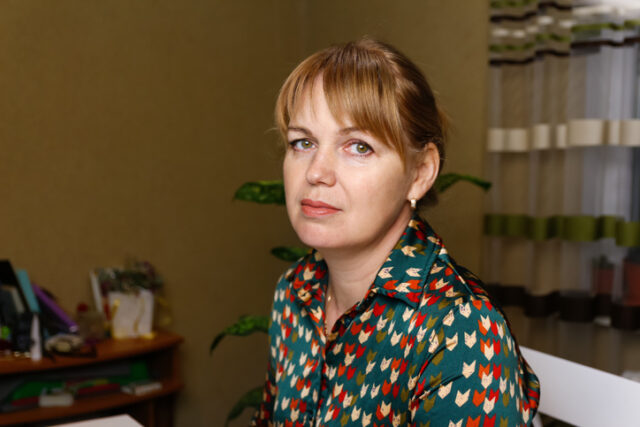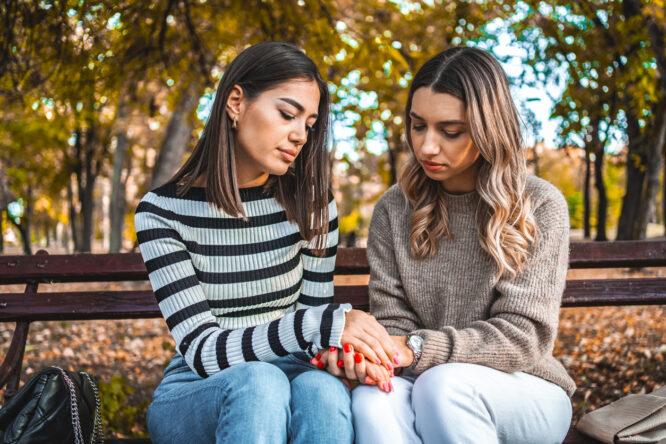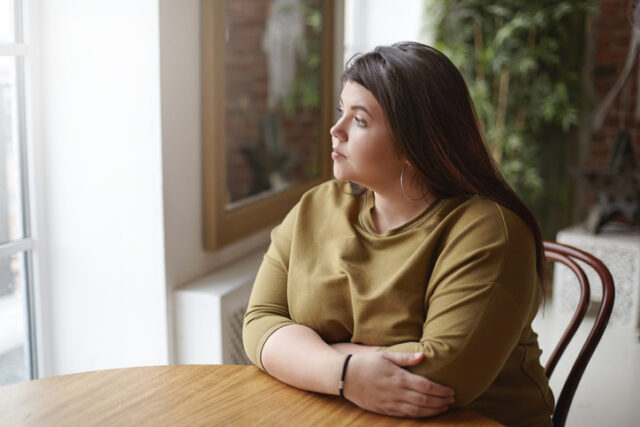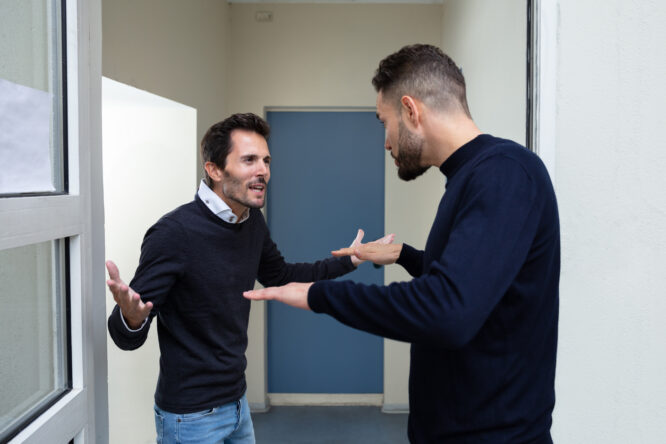Not everyone had a jam-packed social calendar growing up—and for some, those quieter, more solitary years shaped habits that still show up today.

Maybe you weren’t totally alone, but you likely learned how to self-soothe, get creative, and make your own fun without needing a whole crew around you. These habits aren’t flaws—they’re adaptive quirks. Plus, they often hint at someone who had to navigate childhood more inwardly than socially. If you see yourself in these, you’re definitely not alone.
1. You talk out loud to yourself (a lot).

Whether it’s narrating your thoughts or running through entire conversations in your head out loud, you’ve probably been doing this since you were little. When you don’t have a friend nearby to bounce ideas off, you become your own sounding board. Talking to yourself helped pass the time, organise your feelings, and make sense of situations without needing someone else’s validation.
Now, as an adult, it’s just part of how your brain works. It’s not weird—it’s a habit built from self-reliance. While other people might chuckle if they overhear you mid-monologue, you know it’s one of the ways you process the world best.
2. You get emotionally attached to objects.

You’ve probably got a collection of sentimental items that other people might see as junk—old toys, notes, random mementos. That’s because when friendships were few, these things often took on emotional roles. They gave you comfort, consistency, and a sense of history you didn’t always get from relationships.
This habit tends to stick. You still attach meaning to the seemingly meaningless, and it makes sense. Those objects weren’t just things; they were your quiet companions when people weren’t always reliable.
3. You overthink social situations, even with people you’ve known for years.

If you rehash every single conversation after it happens, especially the awkward bits, you’re not alone. Growing up without a lot of friends can make social moments feel heavier. Each one mattered more, so you learned to analyse them to death, just in case it helped you do better next time.
As an adult, this over-analysis still kicks in. It’s not always fun, but it comes from a deep desire to connect well. You might not have had much practice as a kid, so now you’re extra tuned in to how you’re coming across.
4. You secretly prefer solo plans.

Even if you love people, you probably feel most at peace when you’re doing things alone. Solo walks, solo meals, solo hobbies—they’re your comfort zone. Growing up without a tight-knit circle meant you had to learn how to enjoy your own company early on.
Now, solitude isn’t something you run from—it’s something you crave. Some people might see that as antisocial, but for you, it’s just your normal. It doesn’t mean you’re lonely. It means you’re really good at being your own safe space.
5. You read people like a hawk.

When you didn’t grow up with consistent friendships, you probably became hyper-aware of social cues. You had to. Understanding people’s moods, tone changes, or subtle reactions helped you feel more secure in conversations and less likely to get caught off guard.
Now, you can spot discomfort or disinterest in someone before they’ve even said a word. It might make you a little sensitive sometimes, but it also means you’re incredibly empathetic—and great at reading a room.
6. You create elaborate inner worlds.

Daydreaming wasn’t just fun—it was survival. If real-life friendships were scarce, you probably developed rich imaginary worlds or long, complex storylines in your head to escape boredom or loneliness. You learned how to entertain yourself without needing an audience. Today, that creativity shows up in everything from your sense of humour to the way you solve problems. You still have a vivid imagination, and honestly, it’s one of the best things about you.
7. You’re deeply loyal to the people you do let in.

Once someone breaks through your social defences, you’re all in. You don’t take connection lightly because you know what it’s like to go without it. So when you find someone who feels safe and true, you hold on tight. This loyalty can sometimes surprise people, especially if you seem reserved at first. However, for you, real connection is precious, and you don’t waste it on surface-level bonds.
8. You get anxious in group settings.

Walking into a room where people already know each other can make your stomach flip. Group dynamics still feel a little foreign sometimes, and you often default to the edge of the room or the “observer” role. That’s not because you’re shy—it’s because your brain still remembers what it felt like to not belong. You’re careful with where you place yourself socially, and it takes a little time before you feel fully safe to open up.
9. You hate being the centre of attention.

Growing up without a lot of friends often meant you weren’t used to being spotlighted in conversations or group events. So now, when attention turns your way—whether it’s praise or pressure—you might freeze or feel exposed. It’s not that you lack confidence. It’s that visibility still feels a little unfamiliar. You’re more comfortable in one-on-one conversations or smaller, low-pressure situations where you can just be yourself without performance anxiety.
10. You have a low tolerance for performative friendships.

You can smell fakery from a mile away—and it puts you off fast. If someone’s being overly nice, always “on,” or only around for convenience, your internal alarm bells start ringing. That’s because growing up without many friends taught you to value sincerity over popularity. You don’t need a hundred surface-level connections. You’d rather have two or three real ones you can count on. And you’re quick to pull back from relationships that feel performative or transactional.
11. You keep backup plans for everything.

Being left out or overlooked as a kid can make you quietly expect things to fall through. So now, you always have a plan B. Whether it’s a backup ride, a solo activity lined up in case plans cancel, or just mentally preparing for disappointment—you’re always ready.
This can make you seem extra organised, but it’s really about emotional safety. You’ve learned how to cushion yourself just in case the world doesn’t show up for you—and honestly, that kind of emotional foresight is a strength.
12. You find comfort in routines.

When friendships were unpredictable, routines became a form of control. Having a set way of doing things helped you feel grounded and secure when people weren’t always there. That’s why today, you thrive on structure—even if it’s just small daily rituals. Your routines aren’t rigid, they’re calming. They remind you that you can create safety and rhythm for yourself, even when things around you feel uncertain or emotionally off-kilter.
13. You notice when other people are left out.

You’ve been that person in the corner. The one not invited. The one hovering at the edge of the group. So now, when you see someone else in that same position, your instinct is to include them or at least acknowledge their presence. This awareness makes you a quiet protector in social spaces. You’re not loud about it, but you see things other people miss. Not only that, but you carry the kind of empathy that only comes from having felt that ache yourself.
14. You’ve become your own best company.

At the end of the day, you’ve built a relationship with yourself that a lot of people envy. You know how to self-soothe, how to laugh at your own jokes, how to find peace without needing a crowd. You learned it early, and it stuck for life. Growing up without many friends wasn’t always easy—but it shaped a version of you who’s creative, introspective, and fiercely self-reliant. And that version of you is more than enough.




